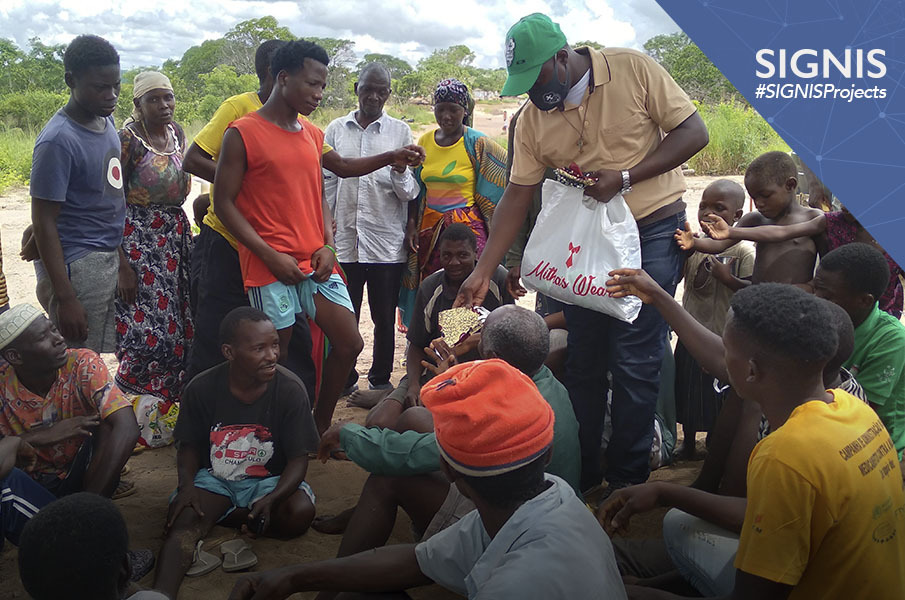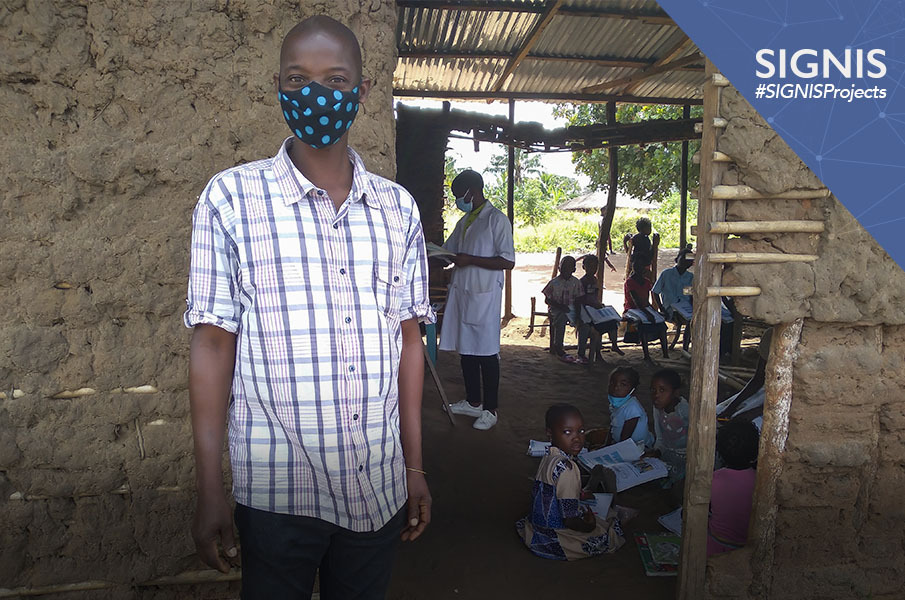Every year, SIGNIS screens project applications on media training, equipment, and production for subsidy from the Pontifical Society of the Propagation of the Faith (PSPF). In 2020, we launched the signisprojectapplication.net online portal, successfully switching from a paper-based to a fully digital application process and making it easier for applicants from all over the world to submit their projects.
Last year, we received a project to help support the development of Radio Sans Frontières in the diocese of Pemba, Mozambique. In this interview, Father Fonseca Kwiriwi, CP, explains how vital the funds are for the radio and its crucial role, especially in a period of crisis and conflict in their province of Cabo Delgado.
Could you tell us more about the human impact the project will have on your community?
Father Fonseca Kwiriwi: Radio Sans Frontières is a radio station from the province of Cabo Delgado in Mozambique. The region has been ravaged by a war that resulted in a humanitarian crisis and caused the displacement of 730,000 people and about three deaths. Supporting the radio means boosting communication in the area, as the radio offers training and information programs that contribute to human capital development. Based on interactions with radio listeners, we know that evangelization, social, political, and cultural programs are fundamental to consolidating the society affected by war and Covid-19.
How do you see the situation in your community once the project is implemented?
Implementing the project from beginning to end will have a significant impact on the province. It will allow us to reap positive results by changing behaviours and promoting citizen participation. The spiritual and religious dimension of the project will be greater conversion to God.
What can you tell us about the community where the project is taking place?
The diocese of Pemba covers the entire province of Cabo Delgado, northern Mozambique, with more than 350,000 Christians and a population of 2,600,000. Sixty per cent of the population are young people, and most people live in rural areas. About 80 % of the population lives in extreme poverty. The illiteracy rate is very high, especially for women, as girls are forced into early marriages. Five languages are spoken in the province: Portuguese, Emakhuwa, Shimakonde, Kimwani and Kiswahili. With a large part of the population on the province’s coast practising Islam, the Arab culture is very present cooking, singing and dancing. The diocese of Pemba has 17 parishes and two pastoral areas (parishes in creation). There is a lack of missionaries to cover more of the pastoral dimension. The local clergy is formed by few priests but has been welcoming many seminarians in recent years. The extreme poverty in the diocese makes it challenging to build adequate parishes and chapels. Access to the Internet and television is limited, and in fact, they are only available in the city of Pemba and some district headquarters.
Is there a specific story that you recall from these last years working at the radio?
Yes. In more than three years of war, we reported testimonies from women who escaped from the terrorists. One of them showed up in Pemba after a week of walking in the forests of Cabo Delgado with her baby on her lap. When she arrived in Pemba, tired and with her feet wounded, she was assisted by some solidarity people, and Caritas Pemba helped her with food kits, hygiene material and accommodation.
Why do you think PSPF should continue to support these types of projects?
Because the radio carries out relevant pastoral, social and political action. The project benefits not only the diocese of Pemba and the province of Cabo Delgado but also the country, as the web radio (www.radiosemfronteiras.co.mz) is accessible to all and not limited to 102.1 FM waves. Getting annual support allows for broader radio coverage as well as better training and maintenance of radio equipment. We are very grateful for the support we received so far.



